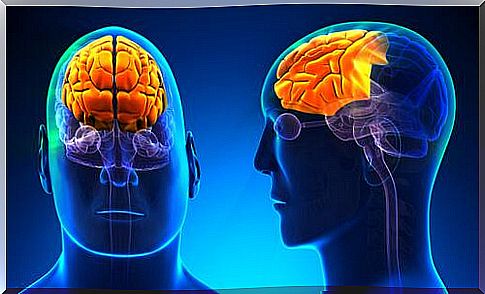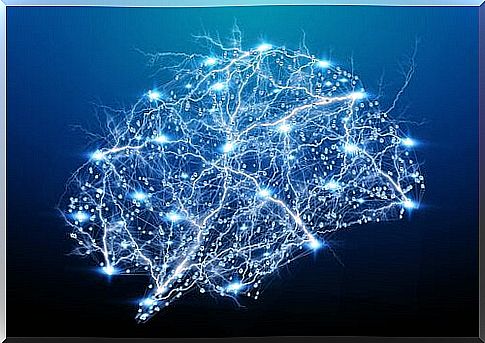Executive Intelligence

Very often when we think of intelligence, the concept of academic intelligence comes to mind. We imagine a student with good grades, a person with a university degree or a scientist devoting all his time to research. But this way of seeing intelligence does not take into account everything that is included in this psychological process.
Today we know that there are multiple intelligences. Intelligence should be understood as:
- The ability to interpret information that comes to us from outside
- The ability to integrate it into our internal experiences
- And the ability to provide a better response to the problems we face (executive intelligence)
Psychologists study intelligence far beyond the intellectual coefficient. They identify it according to the individual’s ability to adapt to the environment in which he finds himself. Executive intelligence is in fact our ability to know how to make decisions, to curb our impulses, to reflect on our feelings and thoughts, to know how to plan our actions and to direct our attention. Together, all of these skills form the outline of what is known as executive intelligence.
In this article, we will explain to you in a simple way what executive intelligence is. You will also discover the right way to improve it.
Biological basis of executive intelligence: the frontal lobe (central executive)
In the first place, it should be emphasized that when looking for information concerning the biological bases of executive intelligence, it is very likely that we will find information under the term “executive functions”. The explanation is as follows: executive intelligence has been studied separately, empowered by ability or function by function. For this reason, scientific articles on the subject generally refer to executive functions more than executive intelligence. Nevertheless, the term executive intelligence is correct because it refers to the use of all functions as a whole.
By studying this type of intelligence on a physiological level, we focus on our frontal lobe, and our pre-frontal cortex in particular (control of cravings and decision making). We can say that the frontal lobe is the one that directs and governs the rest of the conscious functions of our brain.
This can be said because people who suffer from strokes or accidents in the frontal lobe at the neuronal level, have to deal with the damage or loss of their executive functions.

Scientific evidence
The scientific literature lists many documented cases of the appearance of problems following a lesion within the frontal lobe. People can suffer from:
- Permanent deconcentration
- Inability to plan routine sequences of normal life
- Inability to remember what they were doing or why
- Difficulty curbing their desires
The case of Phineas Cage (Ratiu, et al., 2004) is well known. Following an accident, his frontal lobe remained badly damaged. Phineas stayed alive but lost what made him truly human: his executive intelligence.
What skills constitute executive intelligence?
Personal control and management of cravings
Personal control is one of the main components of executive intelligence. The frontal lobe (pre-frontal cortex, near the eye sockets) is responsible for regulating our behavior. It makes it possible to identify the possible consequences of our actions and thus to make the decision or not to act according to the situations.
In other words, the weight of education and cultural pressure falls on the frontal lobe and is part of executive intelligence. This is one of the assumptions that is used to justify that people diagnosed with Attention Deficit Hyperactivity Disorder be treated with stimulants that allow the frontal lobe to work harder.
The regulation of our behavior is part of executive intelligence. Knowing how to shut up at the right time and being able to curb a desire which, if carried to term would be detrimental to us, corresponds to executive intelligence. This type of intelligence is associated with the ability to know when it is best to act and when it is not.
Thus, executive intelligence is associated with the ability to control impulsivity. One way to train this type of skill, for example, might be through trying to gain personal control. For example, when you feel the urge to do something (buy something, drink or eat), just stopping for two seconds and saying to yourself “what are you going to do and why?” can help you gain tremendous personal control and improve this component of executive intelligence. In this way, you will succeed in training your self-regulation capacity and you will work on better executive intelligence.
Working memory
Working memory was conceptualized by Baddeley (1974). In general, it refers to a process rather than a knowledge storage function. Working memory is the type of memory we use to develop reasoning, have short-term memories, make action plans, and make decisions.
We could say that in a computer, this memory corresponds to the processor. Working memory allows us to process a large amount of information at once and to be able to analyze it in order to know what to do, how to feel and what to do next.
Why is working memory part of executive intelligence? Working memory allows us to establish relationships between different elements and to make related decisions. It is therefore this which allows us to integrate information, to reason and to draw conclusions by including information of different kinds. A good way to improve your working memory is to do mental arithmetic.
Planning and decision making
Part of executive intelligence is thoughtful and quick decision making. An intelligent decision-making process optimizes the “pros” and “cons” of each option. A person with good executive intelligence knows how to make up his mind and he does so on time.
The decision-making process that we carry out thanks to executive intelligence supposes great capacities of projections. In fact, we have to imagine scenarios beyond reality and mentally adapt to the different possible scenarios.
The ability to plan is also a component of executive intelligence. Executive intelligence is responsible for imagining plans and strategies to achieve goals using planning.
Being able to plan is a necessary skill for many activities of daily living. It is also necessary at crucial stages of life: the choice of studies, the search for work, the fact of becoming independent, of starting a family, etc. In all of these situations, we resort to our executive intelligence. For this, it is very useful to carry out exercises to improve our capacity for planning and development of strategies.

Cognitive flexibility
A developed executive intelligence allows us to adjust our ideas to the changes we experience in our reality. For this reason, psychologists are aware that it is very healthy to change your mind. Changing your mind is actually evidence of cognitive flexibility. It allows us to adapt our thoughts or our plans to the circumstances of the moment.
In addition, being cognitively flexible is associated with a greater ability to deal with frustration. Thanks to this flexibility, we are able to change the way we achieve a goal without having to change the goal.
Thus, extremely intelligent people on the executive level have a very high capacity to adapt to adversity. This is due to their great cognitive flexibility. In other words, if they have an idea in mind and things don’t go as planned, they keep the same goal but change their plans.
In order to have greater cognitive flexibility and improve your executive intelligence, you can perform exercises that allow you to leave your comfort zone. You can change some steps in your daily routine and expand your personal interests. The more different the stimuli received by your mind, the more your flexibility will be important.
Reasoning or abstract thoughts
This component of executive intelligence is perhaps the one that most sets us apart as human beings. Thanks to it, we can think in an abstract way. We can imagine “things” that do not exist physically but mentally or emotionally. We are also able to think about what we think (meta-cognition). Abstract reasoning is what allows us to work on our emotions, feelings, doubts, fears, and other psychological aspects.
In addition, executive intelligence allows us to make sense of our life. It allows us to fuel our mental health. It is abstract reasoning that helps us take into account the value of our existence. It is also abstract reasoning that allows us to think about enjoying every minute we spend awake. Without this ability to reason in the abstract, we would have an excessively pragrmatic and meaningless life.
To improve this skill, you can train your ability to introspect, study, and read topics associated with philosophy and art.
Finally, remember that executive intelligence is a different way of understanding intelligence. This approach is associated with a very significant benefit. It helps train the different components of executive intelligence and improve the quality of life of individuals. Simply put, executive intelligence is part of a new paradigm that focuses on improving the individual’s adaptation to the world around him. Find motivation and train there!








